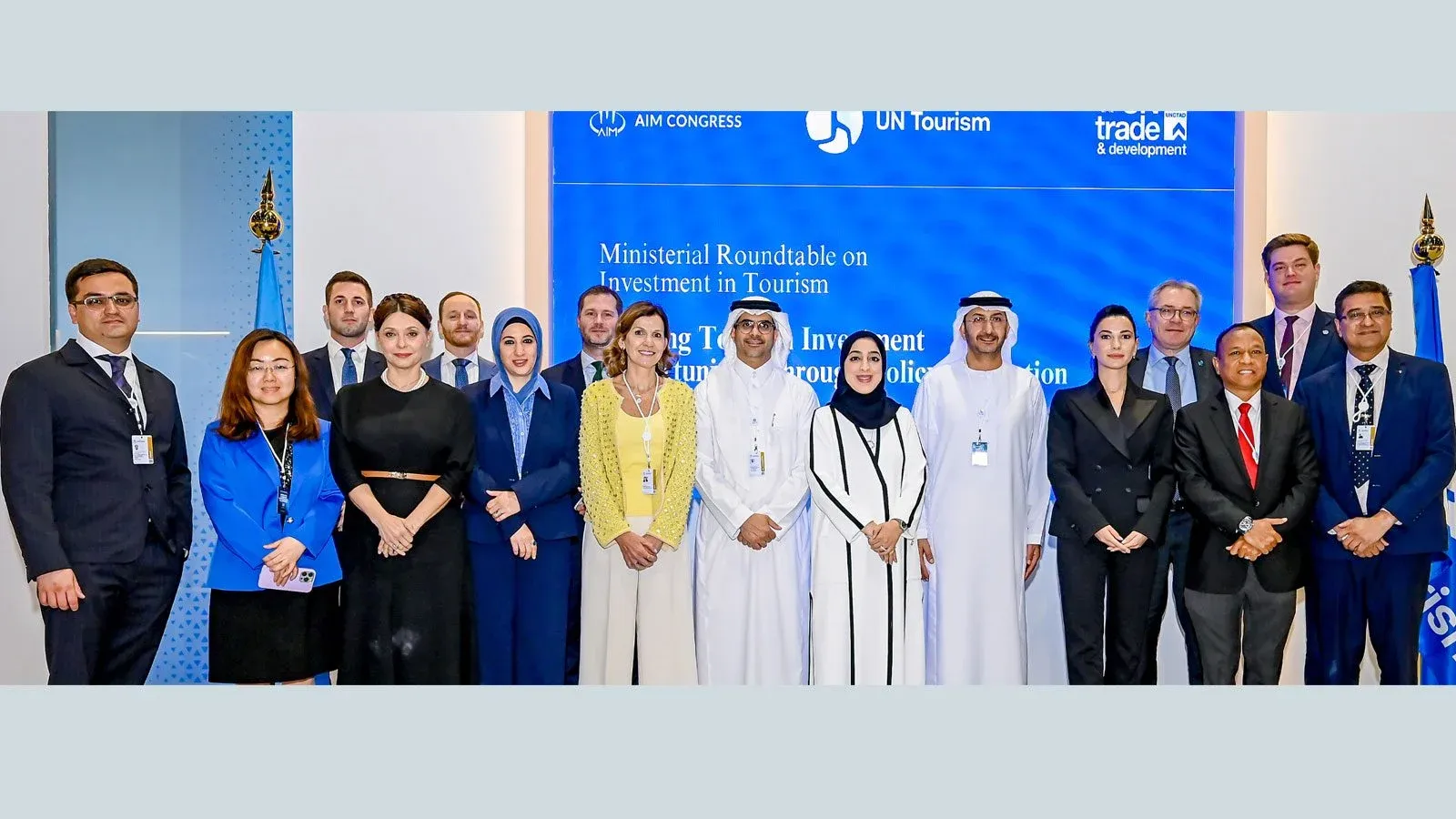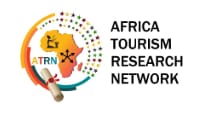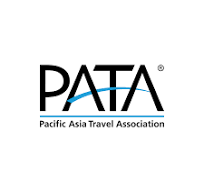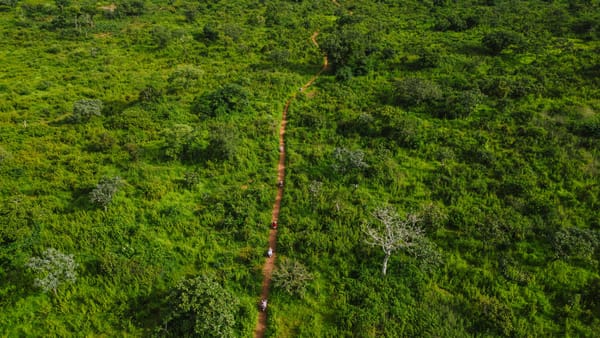Meaningful Tourism goes to Istanbul
Meaningful Tourism Weekly Editorial
Dear reader,
a warm welcome to the third edition of the Meaningful Tourism Weekly. If you are one of our many new subscribers, please also have a look at the previous editions, if you were among the first 100 subscribers, congratulations to your quick recognition of evolving trends.
AP, the agency fighting to get back into Air Force 1 and the White House press conferences, quoted your humble editor last week analysing the “Trump Slump” of international tourism arrival numbers in the USA (see the link in the Meaningful Tourism News section below). In other parts of the world, however, tourist numbers continue to grow in parallel to the need to create holistic solutions to the many problems a growth concentrating on arrival numbers creates.
Earlier this year, the MTC started a well-noted discussion on LinkedIn, asking if the tourism industry is going the way of the tobacco industry? Cigarettes used to be ubiquitous, they were considered as cool and the brand you used made an important statement about the person you imagined yourself to be. Cigarette machines could be found in public places and in bars and restaurants around the world and a couple in bed smoking signalled to movie audiences what had happened before.
In 2000 still one out of three adults in the world regularly smoked cigarettes, by 2025, according to the WHO, less than one out of five does. Today, cigarette advertisement, smoking in public places, restaurants, airplanes, etc. is banned almost everywhere and health-warnings obligatory on every box. Several national governments have proclaimed plans to ban smoking in their country completely within a decade.
Tourism taxes, restrictions of entry, and "Tourists go home" graffiti as the symbol of host community resistance are pointing in the same direction, especially as tourism is using public resources without paying or being taxed for it, including sunshine, beaches, landscapes, city centres, cathedrals, local picturesque inhabitants etc., while tax payers have to provide the budget for the repair of the damage done and the additional infrastructure needed.
The tourism industry takes it for granted that all governments are happy with taxes and jobs created, as a consequence, when popularist and xenophobic politicians discover tourism-bashing as a way to get votes, the shift in the narrative and subsequently changing policies will hit it completely unprepared.
Fortunately, the discourse how to reach a not only a better image of tourism, but indeed transforming tourism into a “force for good”, as UN Tourism has named it several times, is taking up speed. Your humble editor is currently in Istanbul, the vibrating capital of Türkiye, formerly known as Turkey. By the way, if you want to know why the country changed its name in 2022, see https://www.theguardian.com/world/2022/jun/03/turkey-changes-name-to-turkiye-as-other-name-is-for-the-birds.
Two events, which have been flagged already in the Events section of Meaningful Tourism Weekly in the past editions, are taking place in the coming days here: The Colors of the World exhibition includes a conference under the title Meaningful Event Tourism: Destinations providing events as Transformational Experiences. From the 18th to the 20th of April your humble editor will have the honour to chair this conference, which also includes several certified and soon-to-be certified Meaningful Tourism trainer as speakers.
Directly afterwards the PATA Pacific Asia Travel Association will bring together from the 21st to the 23rd of April a huge number of the most prolific tourism experts from this region for the Annual Summit. The meetings include a session on Optimising Tourism for Meaningful Growth and will look at the development of a Meaningful Tourism industry from many different angles.
Look out for the coming edition of the Meaningful Tourism Weekly for reports on these two major events and the results and insights they delivered.
As always, all best wishes from Prof. Dr. Wolfgang Georg Arlt and the Meaningful Tourism Weekly team!

Editor: Prof. Dr. Wolfgang Georg Arlt
Guest Article
Meaningful Tourism to Manifest Responsibility in Erratic Times
By Max Haberstroh
Little seemed to have changed ever since Covid-19 was declared over. Reprocessing the pandemic and investigating its responsibilites have largely given way to business as usual, while – until recently – the focus of public discussions has been set on challenges like climate change, economic recession, rotten infrastructure, knife-terror, social unrest and the wars in Ukraine and Gaza. Now the world faces a shrill wake-up call from the U.S.: In an effort to obtain „fair deals“, Donald Trump launched his rollercoaster policy on tariffs and trade, accompanied by stockmarket turnarounds and economic turmoil.
In the apparently parallel world of Travel & Tourism – equally flabbergasted and struggling with its own collateral damages –, the wear and tear of the sustainable tourism mantra has prompted critical experts to ring the alarm clock. What has gone wrong with sustainability? Has the temptation to business greenwashing become too strong? No doubt, the bell tolls for a mislead life in many a comfort niche, and linguistic cosmetics to embellish product and service properties have ceased to match up with the increasingly urgent proposition of change. But who is in charge? Is anybody responsible out there? Responsibility is meaningful, it is relevant as the essence of decisions and resolutions.
Alas, since many years ago already, responsibility does not seem to have been the preferred approach of many present-day figureheads, who, rather than bend on making decisions, rely on delegating, protracting and postponing, following the slogan: Let's have a look – then we will see.
For too many people, the word change is equal to trouble, but spin doctors are on the alert: Is there a notion to replace the word 'sustainable', bleached out as it is? Wouldn't 'Responsible Tourism' – some say 'Meaningful Tourism' – instead be a more accurate approach, even cause some mental change? After all, Tourism's focus on the eonomic, social and environmental balance of pros and cons has the time on its side to outlive the traditional, easy-handed practice of playing with merely numerical values gladly submitted to economic growth in GDP statistics.
Talk shows may be good to update audiences and brush up experts' image. In the beginning is the word, yet word should follow deed. As a matter of fact, responsible Travel & Tourism, carefully projected and stringently implemented, could be upgrading Tourism intrinsically, reaching beyond its core business as an outstanding service industry. Besides making benefits as the outcome of entrepreneurial performance, enterprises do have a social commitment – and they know about it. Charity and sponsoring are just two fields of activities companies indulge in, to enhance their social reputation and image. But there is something else that has to do with extending functions and responsibilities.
Embedded in a political setting, Travel & Tourism, to boost cooperation, is prone to seek commonalities with likeminded organisms in both government and business, using 'cultural diplomacy' as the tool to launch cross-sector or cross-industry initiatives. It is true that Tourism is capable of shaping up regional identity and boost the emergence of an image desired as a travel destination, but even more so, in a supplementary way, as a 'place to live, to work, to invest and to travel'. The idea of an extension is: Tourism would not be just promoting a holiday destination, but spearhead the country's (region's, city's) 'place marketing' altogether: a more holistic approach that would be covering the needs and aspirations of the visitors, the local people, and the environment. It could attract a maximum of public awareness and, at last, enhance the perception of 'Travel & Tourism' as an amazingly comprehensive 'communication tool-box', or a cluster of muti-level communication tools.
Tourism is the world's largest employer (WTTC) and a very important one in Germany, generating 11 % of GDP. But there are defaults that leave a lot of the sector's political potential untapped: its volatility to negative occurrences especially outside Tourism's immediate scope, its fragmentation in mostly small and medium-sized enterprises and public units, and its prevailing image of a happy-go-lucky leisure and fun business – a bit superficial, a little crazy, always casual, with healthy people clad in colourful attires and blessed by throngs of easygoing crew members. No hard work visible, no stress shown, instant wellness on display instead.
Consequently, the sector has been assessed "non-relevant", in timely reminiscence to comments regarding the political perception of Tourism during the pandemic. However, Travel & Tourism is a serious matter, beautiful and rewarding, but a tough job, too. In order to underscore the eonomic and social importance of Tourism, making the perception of its crucial properties meaningful and 'relevant', its extended function as a 'an orchestrated cluster of muti-level communication tools' would be a great asset, accompanied by a structural reshuffle and an increased empowerment of its public organisms. Tourism Ministries would have to play a more effective role as the spearhead of place marketing, guardian of 'umbrella' branding and promoter of place-marketing policies.
Therefore, the traditional Ministry of Tourism ought to be upgraded, from the functional 'line organization', as it is widely practiced, to the level of a 'staff organism' at the very top of state/government leadership. In order to assure that the Ministry, besides its commitment to the typical public administration regulations, acts according to market priorities, the Ministry of Tourism should be completed by a free-wheeling Promotion Board that holds a defined autonomy status to maintain operational flexibility. Responsibilites would include the elaboration of an integrated mission-vision statement, consistent guidelines, strategy and operations.
Tourism indeed has never been reluctant to herald another element of its 'higher purpose': its claim to be a leading global peace-maker. To everyone's shock and dismay, today's war-and-crisis ridden time has not been prevented, not even mitigated – neither by politicians, nor by peace movements, climate gluers, Friday-for-future luminaries, Olympic Games stakeholders, not by global carnival's court jesters, not even by the unheard voices from churches, mosques and temples – and last but not least, not by the leaders of global Tourism.
How can Tourism uphold its mantra of being a global peace-maker? Has the given pattern turned out good enough to serve as an uncontested fact? There are plenty of examples in the political bag of tricks, stipulated as dogmas „without option“. At last the mainstream prompts the fake to emerge and to perpetuate itself as correct and true – albeit due to its perennial repetition.
Our hope that despite all odds things may turn out well may go along with a good deal of humour and our transcendental understanding that we are only guests on earth. Our world is our host, and we are all co-hosts, guests and co-creators. Therefore, to a high degree, we are responsible for the „Human Condition“ (Hannah Arendt).
It seems, however, that we cannot escape the suspicion of conspiring with the „Part of that Power, not understood, Which always wills the Bad, and always works the Good“ (Goethe in 'Faust'). With the litmus test still outstanding and world leaders' thriving on chaos challenges, Tourism's peace claim remains meaningful, yet almost as controversial as both the dragging Covid-19 root cause analysis and politicians' metamorphosis into desperate peddlers in quest of new deals.
To get in touch and check more on Internationaler Berater Für Nachhaltigen Tourismus OR www.linkedin.com/in/maxhaberstroh
Meet the Trainer for the Meaningful Tourism Transformative Game Workshop for Thailand:

Jurairat Povibool (Jerri)
Jurairat, a Thai hospitality professional with over 30 years of experience across Asia, has worked in hotels, travel agencies, cruises, and incentive houses. Her career spans countries including Hong Kong, Vietnam, and five years in the Middle East.
Her most recent role was Vice President at Bhaya Cruise Ha Long in Vietnam. Previously, she served as Director of Sales & Marketing at Sedona Suite HCMC Residence & Hotel and as Vice President of Business Development & Marketing at An Lam Retreats Saigon River & An Lam Retreats Ninh Van Bay.
She is currently the CEO of Exotic Travel Advisory, Thailand.
Meaningful Tourism Weekly asked Jerri about the situation of tourism in Thailand and the role Meaningful Tourism paradigm can play to support the development in this country.
Her answer:
Thailand has recently faced two significant challenges. The first involves Chinese mafia operations near the Myanmar border, which used Thailand as a transit country for scamming individuals into forced labor. This issue, addressed through collaborative efforts between the Chinese, Thai, and Myanmar governments, has led to a decline in Chinese tourists due to safety concerns, despite the Tourism Authority of Thailand's (TAT) efforts to promote safe travel. The second challenge is the earthquake that occurred a few weeks ago.
In response to these misfortunes, the Tourism Authority of Thailand (TAT) has decided to increase marketing efforts in Middle Eastern countries to compensate for the loss of tourists.
Thailand has already achieved a certain level of maturity in sustainability, supported by a dedicated government department. Some local hotel groups and hospitality-related associations are also incorporating sustainability into their plans. However, despite this awareness, actions sometimes contradict these sustainability goals.
The Meaningful Tourism Paradigm could serve as an ideal training framework in Thailand because it encourages open dialogue among all stakeholders, including destinations, companies, and organizations. Crucially, it includes a system for measuring completed tasks with specific timelines. Regular follow-ups can help analyze whether tasks are completed on time and, if not, identify the reasons why. This analysis is invaluable for identifying areas of improvement within organizations.
Trainers Around the World
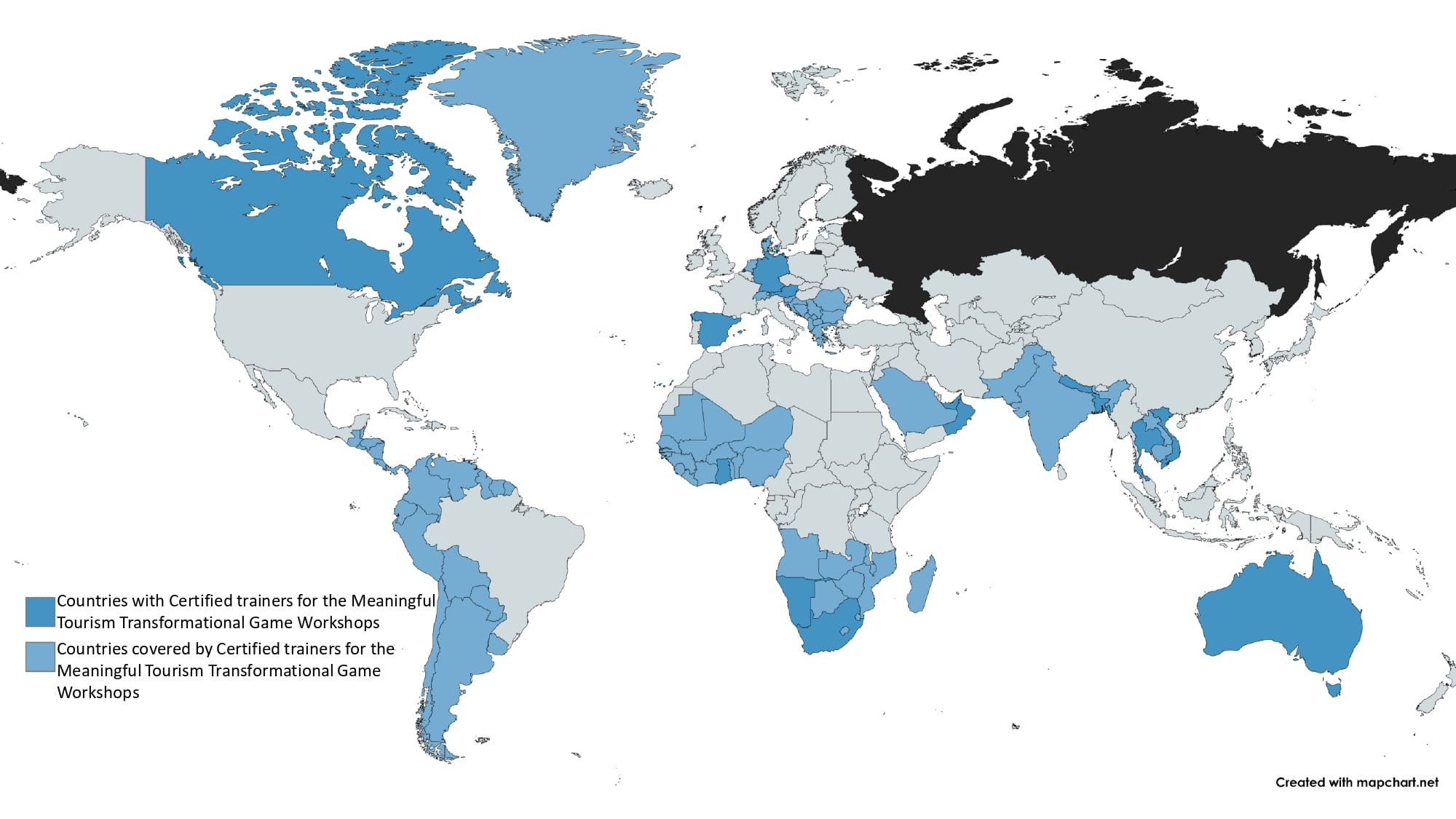
MTC is happy to invite more persons to become certified trainers and offering Meaningful Tourism Transformational Game Workshops in countries or regions not yet covered. If you have experience as a trainer and interest to support sustainable tourism, please contact us.
Meaningful Tourism Best Practice Example
Papua New Guinea Tourism Promotion Authority (PNGTPA) - Planning For A Meaningful Tourism Future
The Challenge: Untapped Potential in a Fragmented Industry
Papua New Guinea (PNG), with its stunning landscapes and cultural wealth, has long held untapped tourism potential. However, the sector has remained small—contributing just 1.4% to the national economy—due to limited infrastructure, weak coordination, and external shocks like the COVID-19 pandemic. Although the Papua New Guinea Tourism Promotion Authority (PNGTPA), in collaboration with key partners such as Air Niugini, the Kokoda Track Authority, the PNG Tourism Industry Association, and international supporters like UNWTO, World Bank, DFAT, and NZ Aid, has worked toward growth, the industry lacked a unified, strategic framework to drive holistic and sustainable development.
A Unified Vision for Sustainable Tourism
To address these gaps, PNGTPA introduced the Tourism Sector Development Plan (TSDP) 2022–2026, replacing the outdated master plan with a modern, sector-wide strategy. Developed through extensive consultation with state agencies, industry partners, and donor organizations, the TSDP emphasizes simultaneous development of core and enabling tourism areas. It sets a clear direction with a shared vision, inclusive mission, and actionable principles aimed at steering the sector toward resilience, growth, and sustainability.
Collaboration for Resilient Growth
The TSDP stands out as a transformative model for emerging tourism economies. It promotes collaboration between public and private stakeholders, supports inclusive community participation, and reinforces PNG’s commitment to its cultural heritage and environmental stewardship. Grounded in the Five National Goals and Directive Principles, the plan emphasizes integral human development, equality and participation, national sovereignty and self-reliance, resource and environmental conservation, and the preservation of traditional ways of life. With coordinated investment and governance, PNG is now better positioned to grow its tourism sector, improve livelihoods, and share its “Million Different Journeys” with the world.
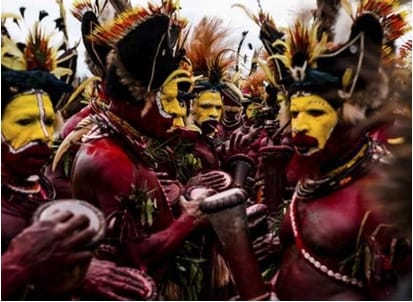
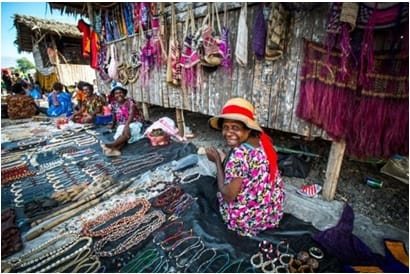
Meaningful Tourism News
For more information on the latest Meaningful Tourism news, we recommend looking at the following information from our partners and colleagues:
TRAVELLERS
‘Don’t swear and cover up’: Bali announces strict new rules for tourists
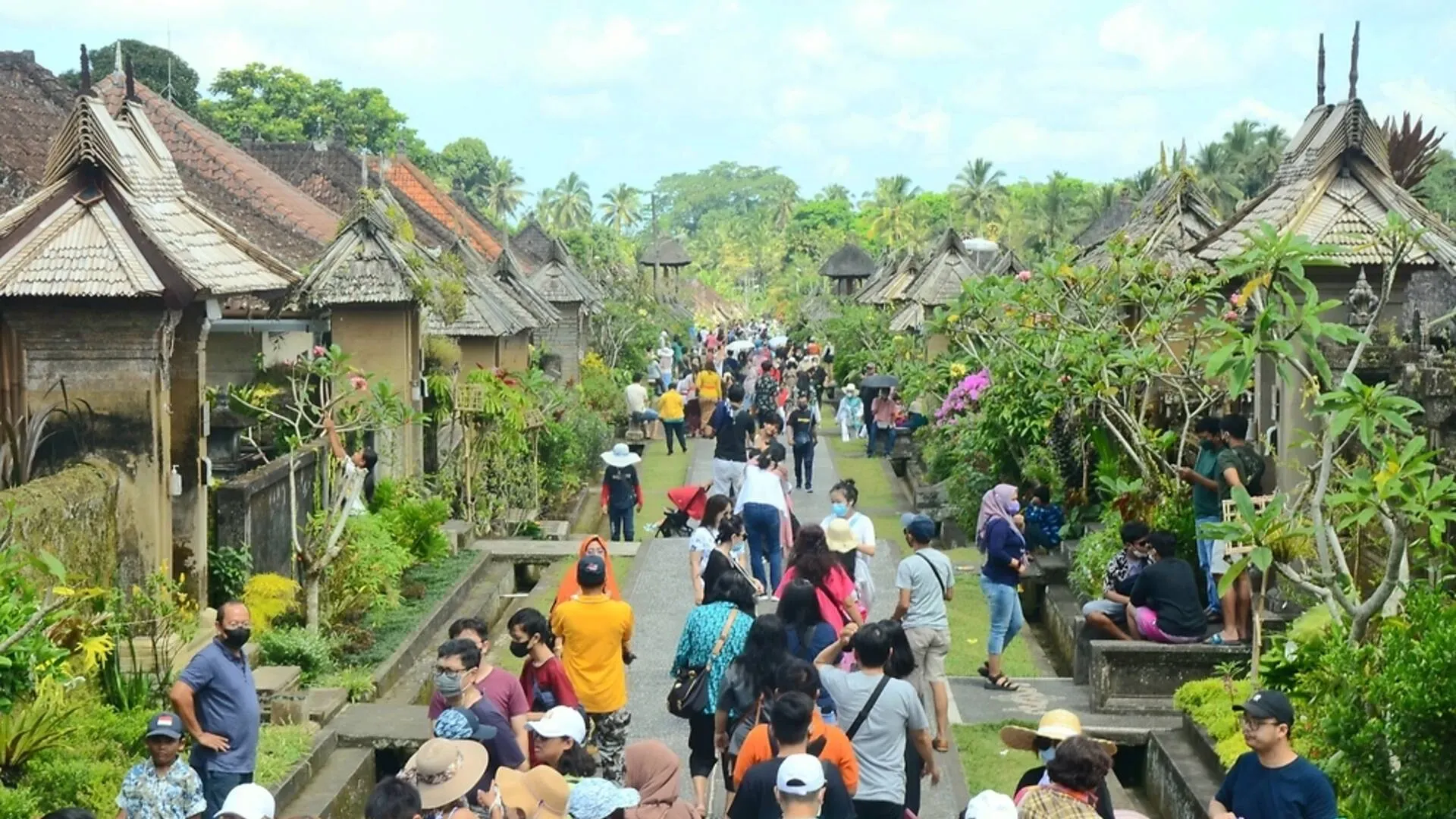
Bali is a wildly popular tourist destination, but to help mitigate its popularity and raise some cash for its ‘environment and culture’, the island implemented a one-time entry fee last year, which can be paid electronically upon arrival.
However, it’s not stopping there. To protect the ‘cultural integrity and sacred sites of Bali’, authorities have announced interesting new guidelines for tourists.
Read more on TimeOut: Bali announces strict new rules for tourists
HOST COMMUNITIES
Is Norway introducing a visitor tax? Here’s all we know about its proposal to tackle over tourism
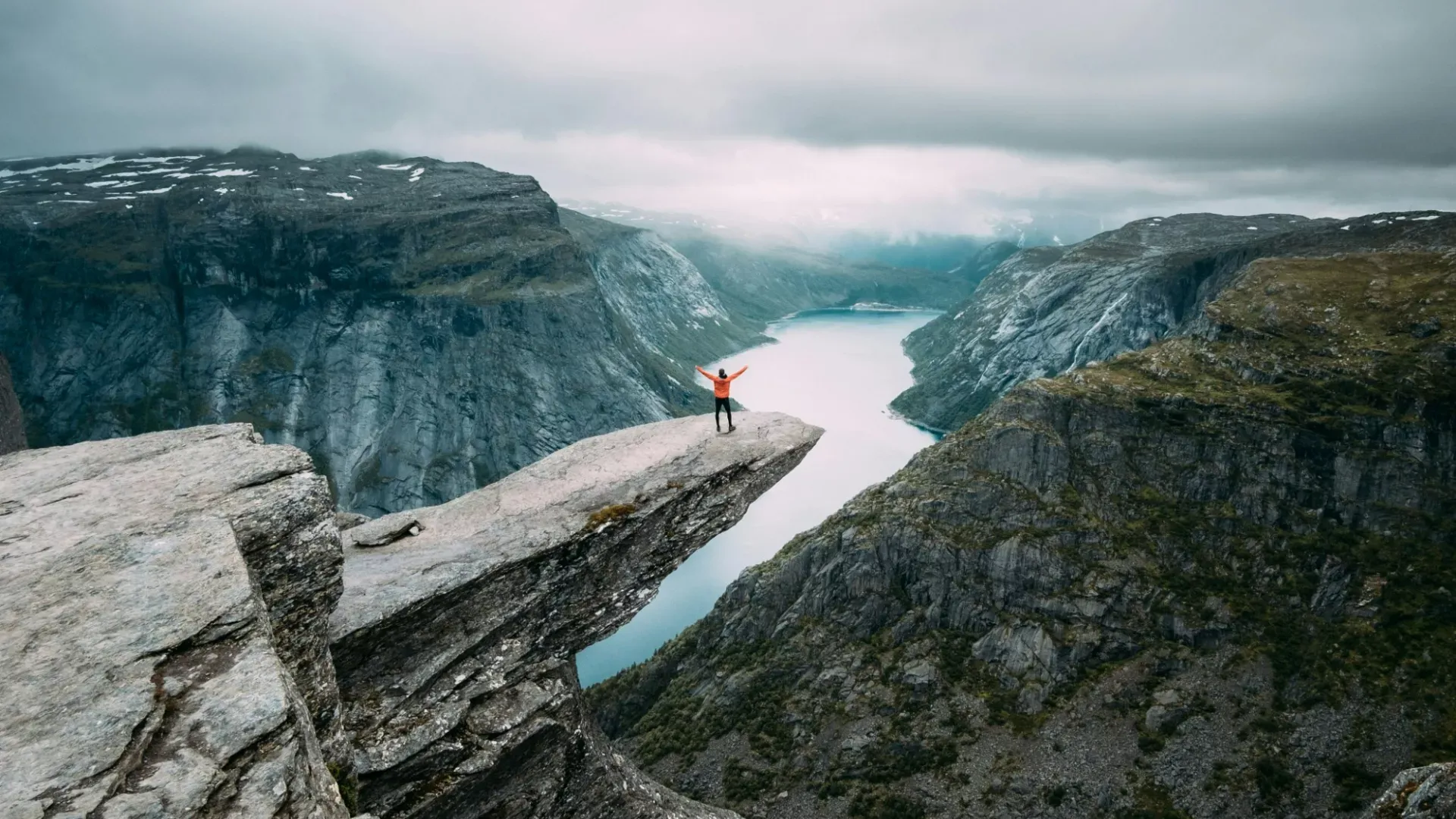
Copyright Benjamin Davies
Norway is experiencing a surge in arrivals as holidaymakers seek cooler climes.
Norway has updated its plans for a visitor tax that hopes to tackle the negative effects of overtourism.
The government has announced it is lowering the proposed fee that local authorities will be able to charge tourists.
Minister of Trade and Industry Cecilie Myrseth has confirmed the tax will now be three per cent of the cost of an overnight stay - instead of five per cent.
Norway hit a record-breaking 16.7 million overnight stays during the summer months of 2024.
Is Norway introducing a visitor tax? Here's all we know about its proposal to tackle overtourism
Clare has been recognised as the first county-wide sustainable tourism destination in Ireland.

County Clare, setting the standard for sustainable tourism in Ireland. Photo: Clare Tourism
The county has been awarded Global Sustainable Tourism Council Destination Certification, which recognises it as a global leader in managing standards for sustainable travel and tourism. Following on from a visit in March 2025 by certifying body Earthcheck, Clare has now set the standard for sustainable tourism in Ireland.
Clare becomes first county-wide sustainable tourism destination
EMPLOYEES
How Sustainable Corporate Travel Policies Will Shape Travel

Countries around the world have implemented policies surrounding sustainability, requiring businesses of certain sizes to report on their environmental footprints. It’s proved a challenge to business travel. Business travel at its base is hardly sustainable. However, this reality has led to change and a growing shift in how businesses approach their travel for the better.
Read more: How Sustainable Corporate Travel Policies Will Shape Travel (JTB Business Travel)
COMPANIES
Sustainability Services Ecosystem Map

Structured ecosystem of sustainability platforms by Giki
This diagram, developed by Giki, offers a structured view of the growing ecosystem of organizations and platforms supporting sustainability. Its relevance today is undeniable, particularly as regulatory pressure, investor scrutiny, and stakeholder expectations accelerate.
Read more on LinkedIn: Antonio Vizcaya Abdo's post on sustainability platforms
GOVERNMENTS
UN Tourism and UNCTAD unveil guiding principles for sustainable investment in tourism
UN Tourism and the United Nations Conference on Trade and Development (UNCTAD) have set out a shared roadmap for building a resilient, inclusive, and environmentally responsible tourism sector, through sustainable investments.
The joint “Guiding Principles for Sustainable Investment in Tourism” are designed to guide policymakers and stakeholders in efforts to build a more comprehensive investment framework aimed at steering global tourism investments towards a more sustainable and inclusive future.
UN Tourism and UNCTAD unveil guiding principles for sustainable investment in tourism
ENVIRONMENT
Tourists shocked by 'rivers of trash' as Vietnam races to green its tourism
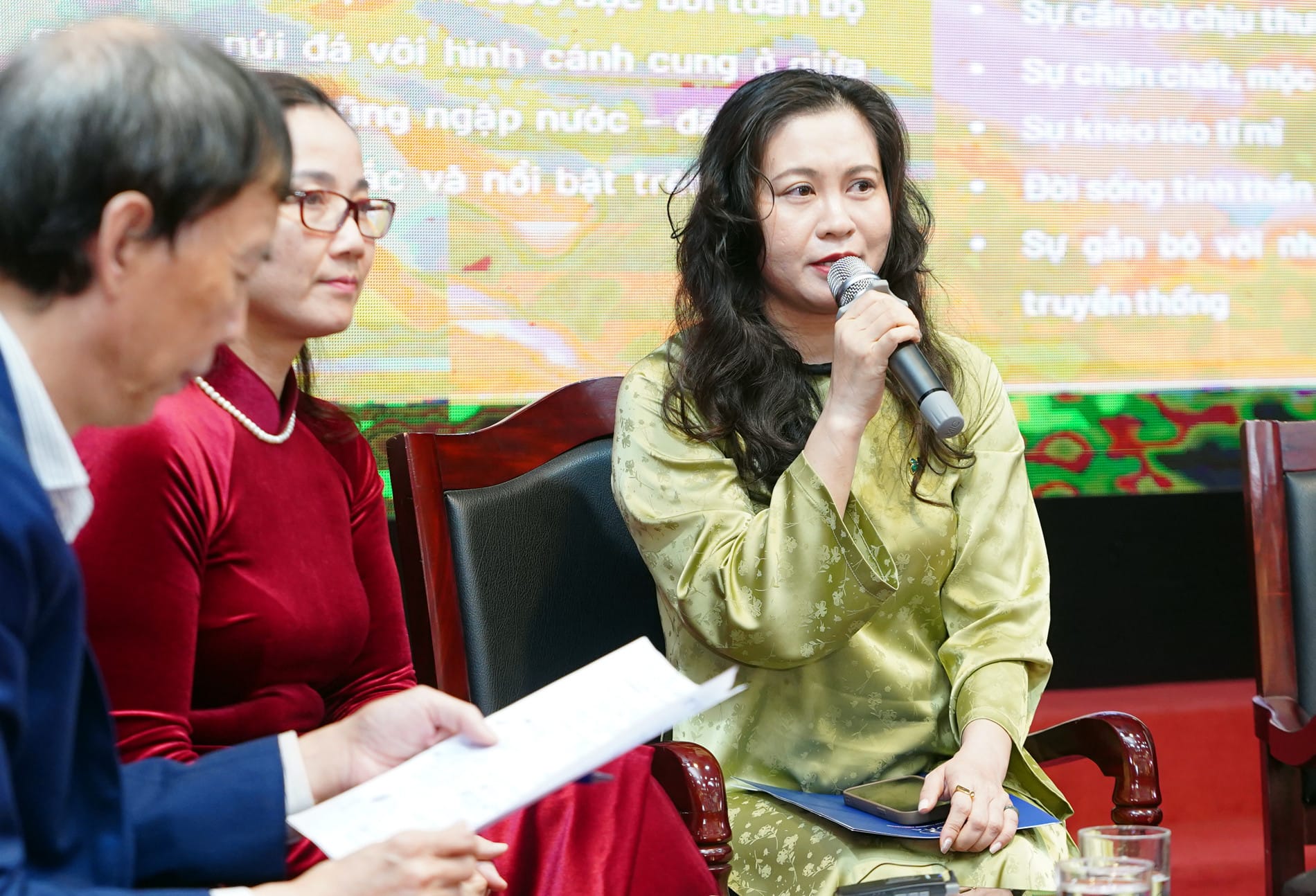
A representative of Trang An Eco-Tourism shares the site's "Three No’s" approach. Photo: Organizing Committee
From plastic in Ha Long Bay to green gaps nationwide, experts urge immediate reform in Vietnam’s tourism model.
Several eco-tourism destinations in Vietnam are proving increasingly attractive, especially to high-spending tourists. However, these green destinations remain fragmented and underdeveloped, prompting industry leaders to call for unified efforts to elevate Vietnamese tourism through sustainability.
The wealthier the traveler, the greater the demand for green tourism.
Read the full article on Vietnam’s green tourism efforts here .
EVENTS
Shaping the Future of Tourism: Insights & Strategies (Public Open Lecture)
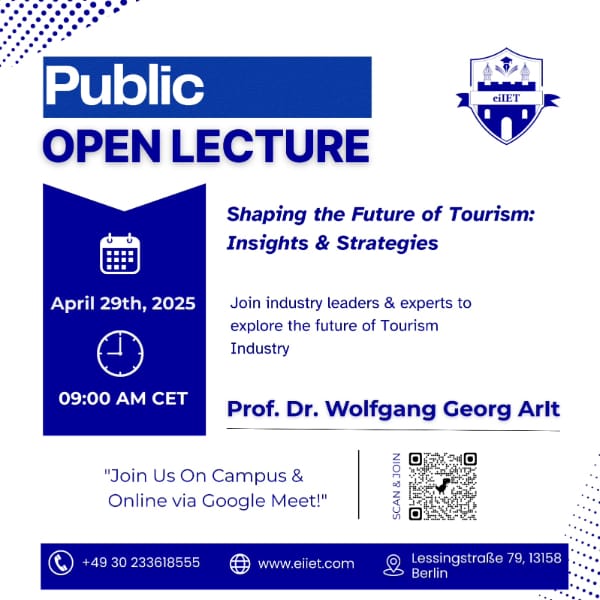
Public lecture in Berlin on April 29, presenting Meaningful Tourism and the Future of Tourism at the EIIET.
GITF Guangzhou International Travel Fair 2025
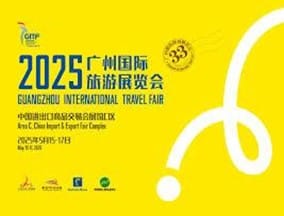
The GITF Guangzhou International Travel Fair 2025 will take place from May 15-17, 2025, in Guangzhou/China.
GITF is the travel fair and conference with the longest tradition in China and the main meeting point for the biggest international tourism source market in the world: South China, including the Greater Bay Area Hong Kong SAR and Macau SAR.
In 2025, the motto of the fair and the accompanying conference is Meaningful Tourism – Enduring Connections. The conference is organized by the Meaningful Tourism Centre. On the first day four keynote speakers from international organisations plus a presentation of the Greater Bay Area Inbound and Outbound Tourism Report done MTC in cooperation with Hong Kong Polytechnical University, Sun Yat-sen University Guangzhou and Macau University of Science and Technology will provide concentrated updates and insights. On the following two days several shorter focus satellite events will focus on several hot topics in Chinas outbound tourism including Meaningful Tourism in China.
The 19th UN Tourism Asia-Pacific Executive Training Programme on Tourism Policy and Strategy
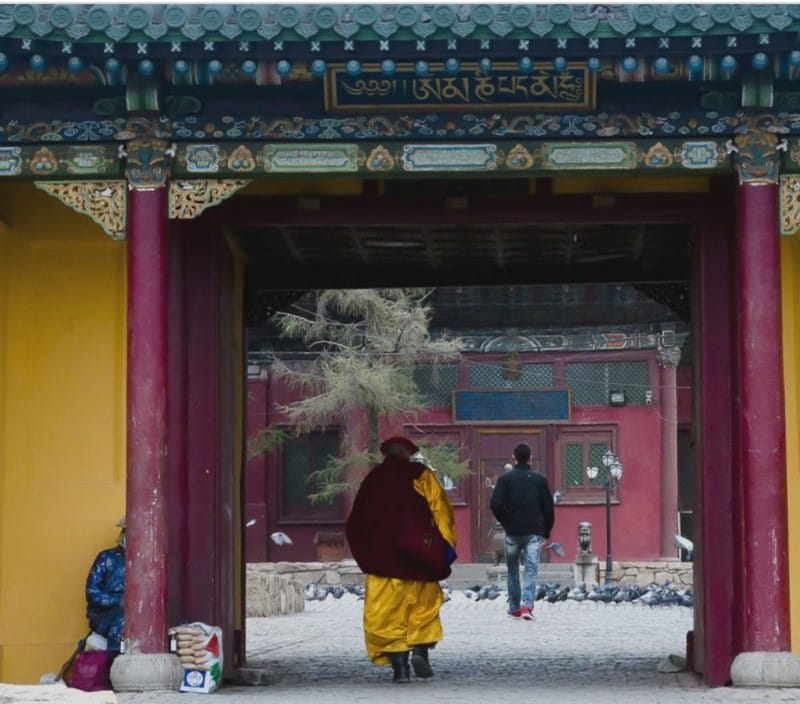
The 19th UN Tourism Asia-Pacific Executive Training Programme on Tourism Policy and Strategy organized by UN Tourism will be held in Ulaanbaatar, Mongolia from 19 – 22 May 2025.
Learn more on the official UN Tourism website →
Meaningful Tourism Weekly is published every Thursday by the MTC Meaningful Tourism Centre (London and Kathmandu).
Each Meaningful Tourism Weekly includes the Meaningful Tourism Weekly Editorial, news about MTC activities, a Best Practice example, a portrait of a MTC-certified trainer, news about upcoming events and occasionally additional op-ed pieces provided by guest authors.
Furthermore, carefully selected news items including videos and podcasts with a link to the original source are added, sorted according to the six main stakeholders of tourism and hospitality, as defined by the Meaningful Tourism paradigm: Traveller/Guests, Host community, employees in tourism and hospitality service providers, service providing companies, governments and the environment.
Subscription to Meaningful Tourism Weekly is free, there are no advertisements. Names and other details of the subscribers are not shared with anybody.
Sponsorship options are available.
If you are interested in the work of the Meaningful Tourism Centre, providing trainings, market research, product adaptation, consulting services, conferences, strategy development and marketing, visit our website www.meaningfultourismcentre.org or contact us using info@meaningfultourismcentre.org.
© 2025 Meaningful Tourism Centre Ltd. (London & Kathmandu). Texts and information can be used in other online and offline publications if the source “Meaningful Tourism Weekly” is mentioned.

